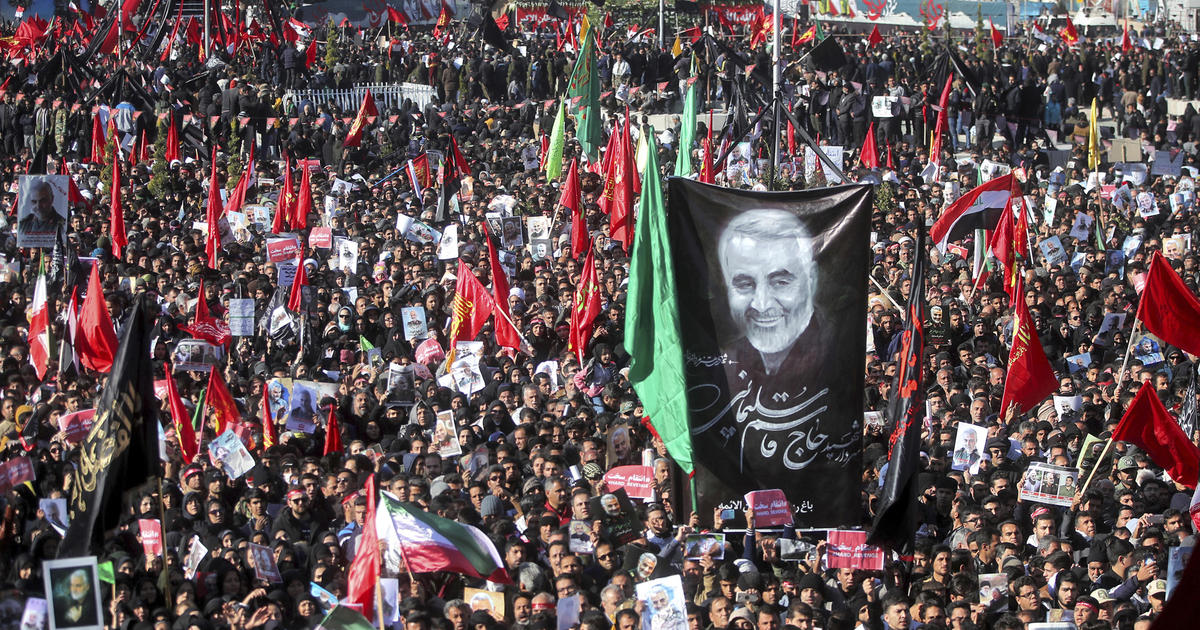
At the beginning of 2020, a drone added to the chaos in the Middle East. Qassim Suleimani, commander of Iran’s Quds Force, was killed in an attack authorized by United States President Donald Trump. Suleimani was one of Iran’s top leaders, and his death was considered an act of war by Iranian leaders, who vowed retaliation.
The death of Suleimani is a “black swan” incident. Considering the disparity between the strength of the U.S. and Iran, Iran’s revenge will not come at once. It will be a long-term process that keeps the entire world on edge about about the risk of war. The incident will affect this year’s US domestic and foreign agenda, and even the world situation.
First, the attack affected Trump’s internal affairs. Members of the U.S. public and Congress are worried that Trump, encouraged by hard-line Secretary of State Mike Pompeo and lacking experienced advisers on Middle East policy, may continue to make irrational decisions. Congress is drafting a resolution to restrict Trump’s war power. Speaker of the House of Representatives Nancy Pelosi said the House would vote on a resolution requiring “military hostilities with regard to Iran” to cease within 30 days. In addition to the Trump impeachment trial to be held by the Senate, the House's restrictive resolution will further aggravate the contradiction between White House and Congress.
The next 11 months will be crucial for Trump in this U.S. election year. He was angered by Iran’s threats, and any irrational Trump decision on Iran will worsen voters’ views of him and affect his re-election prospects.
Second, the attack changed Trump’s established Middle East policy. Before the attack on the U.S. embassy in Iraq and the death of Suleimani, Trump said he would withdraw troops from Syria and Iraq, leaving the responsibility for containing Iran and anti-terrorism to U.S. regional allies Saudi Arabia and Israel. Suleimani’s death is a game changer, escalating tensions between the U.S. and Iran. The possibility of a major conflict between them has increased. Not only has the U.S. withdrawal plan stalled but Trump needs to send more troops and weapons to the region and will be forced to strengthen America’s presence in the Middle East in the future.
Given that the Israel-Palestine issue will complicate the current chaos, the publication of the “deal of the century” proposed by White House senior adviser Jared Kushner and others will be further delayed. Earlier, Egypt’s withdrawal had dealt a heavy blow to the Middle East Strategic Alliance, which was launched by the United States. The intensification of the U.S.-Iran confrontation will further divide America’s regional allies, and the MESA Initiative will go bankrupt.
Third, the attack affected Trump’s overall diplomatic planning. In 2019, the Trump administration’s foreign policy focused on trade negotiations, including those with with Mexico, Canada, China, Europe and Japan. But in 2020, the Middle East conflict will occupy much of the U.S. diplomatic agenda and even reshape Trump’s diplomatic strategy.
For a long time, how to balance the interests and needs of the United States in the Middle East and the Asia-Pacific region has been a dilemma for every U.S. president. The Trump administration has decided to push forward its Indo-Pacific strategy and pay attention to its big rivals, China and Russia. But Suleimani’s death may prevent the Trump administration from turning its attention away from the Middle East. In the coming year, the Iranian and North Korean nuclear issues are likely to bring the United States back to its traditional track of dealing with geopolitically hot issues. Cooperation from China and Russia on the Iranian and North Korean nuclear issues is needed even more than ever. The Iran issue will distract U.S. policymakers, making the Trump administration’s “free and open” Indo-Pacific strategy hard to implement.
Finally, the attack will change the global situation. The turmoil in the Middle East has already affected such things as oil prices and the free transportation of oil. And it will encourage terrorism. Increased tensions between the United States and Iran will lead to soaring oil prices and sharp drops in major world stock indexes, shocking international financial markets. All those factors are negative to global economic recovery and may even trigger political crises in some countries.
After the incident, the media have been clamoring for the China’s strategic opportunity. But it’s not just China: Because of the increasingly tight winding of economic and political relevance in the world today, no matter where turmoil occurs, no stakeholder can stay out of it. The United States will be cautious about being dragged into a full-scale war. Broadly speaking, it’s in China’s interest for the U.S. to refrain from creating more tensions in the Middle East.
China will not interfere in the conflict between the United States and Iran, nor will it engage in any sphere of influence or align with any camp. At the same time, it hopes to use multilateral mechanisms, such as the United Nations, to seek effective measures to cool the situation.
